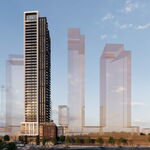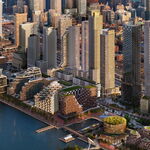I'm not in favour of anarchy and chaos on the road either. But we have so many rules, and whenever we sense a problem we add more rules, and then don't enforce them. As users of the road, most of us are almost driven to push against the rules, lest we feel like a prat or a brown-noser. Who can drive without exceeding the speed limit, without going 20kph over on the highway? Likewise, how many cyclists can comfortably sit at a red light at a T-intersection, or how many pedestrians can wait out a red light on a 2-lane street when they can't see a car in any direction?
Most people are co-operative. A good percentage of people use multiple forms of transportation, and can relate to other users. When I'm cycling, I usually stop at the end of the line of cars waiting at a red light. When I do this the next car will always respect my place in line, treating me as if I was a car waiting there. I can't think of a time when a car has pushed up beside me when I've waited alongside the curb at the end of the line (many cyclists however will push around me).
If we all push the rules a little, there are others who fancy themselves outlaws, or are self-indulgent, or just idiots, who care nothing about the rules, and who endanger others with their aggression and carelessness. We need better enforcement of existing rules to deal with these people, and a more visible regular presence from those who watch over the street. There's no amount of rule-making that will make these people care about rights versus privileges, or become suddenly co-operative.
If we are going to make rules, and if we're then going to enforce them, the greatest attention has to be paid to cars, because it is their destructive power that makes rules necessary in the first place. And I think we need to create more space for alternative forms of transportation, so that more people will use them, and when behind the wheel be more able to relate to the vulnerability of other users of the road. Without this, creating more rules and regulation and forms of licensing just solidifies the car-centric culture we already have, where everyone needs to fall in line so cars will be able to get across town as quickly as possible.
Edit: And this is my major point, why I've been commenting so much in this thread. We won't create greater usage of alternative methods of transportation by trying to force them into structures created for cars, in the mistaken belief this would be more equitable. Especially licensing, which would only push large numbers of people away from cycling at any time.





